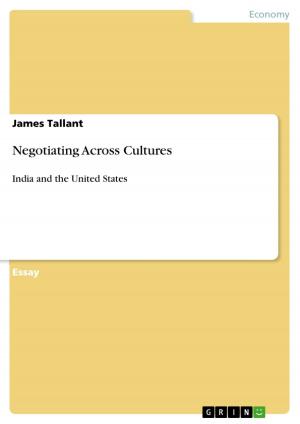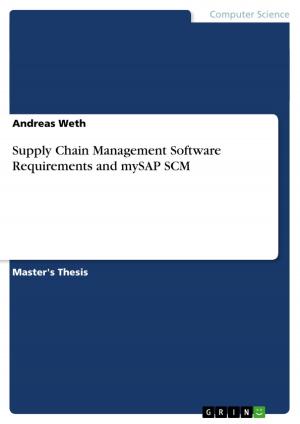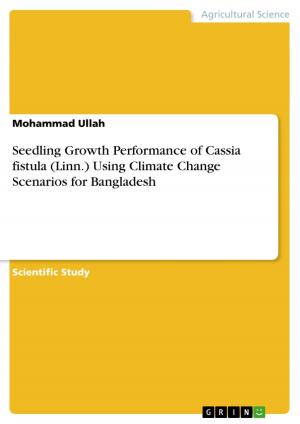Delineating an Educational Policy Framework for the Developing Nations in Meeting the Emerging Global Challenges by year 2050
Nonfiction, Social & Cultural Studies, Political Science, Politics, Economic Policy| Author: | Upali Sedere | ISBN: | 9783640355921 |
| Publisher: | GRIN Publishing | Publication: | June 24, 2009 |
| Imprint: | GRIN Publishing | Language: | English |
| Author: | Upali Sedere |
| ISBN: | 9783640355921 |
| Publisher: | GRIN Publishing |
| Publication: | June 24, 2009 |
| Imprint: | GRIN Publishing |
| Language: | English |
Scientific Essay from the year 2008 in the subject Business economics - Economic Policy, , language: English, abstract: School based general education aught to be a future oriented subject. However, over the years, due to parental and grand-parental generations setting policies of education for the younger generation, education is always more past oriented than future oriented. This trend did not cause much of a problem when the change over time was moderate. As Alvin Toffler (1970) says we are in a turning point of human history. In the changing perspective in the world with speed of change, speed of inventions and speed of knowledge and speed of threat on living education got to change to prepare the next generation to face these new challenges. The climatic change, depletion of resources, growing energy crisis, threat of terrorism, rapid of growth of population and the changing structure of population are new challenges the young generation would face. The world in year 2050 would not be a different place to live. Unless and otherwise education policy is framed to address the 'gloom and doom' side of world by 2050, the next generation would face a serious threat of existence. The positive futurists show that technology and science will not allow the world to laps its primitive past once again. It is clear that science and technology is the only answer to human survival. Therefore, it is important that education policy makers taking a fresh look at the policy challenges for the future. This paper makes an analysis based on the published and documented evidence what policy framework would be required in the developing countries in view of the emerging challenges to ensure a survival of the generations to come.
Scientific Essay from the year 2008 in the subject Business economics - Economic Policy, , language: English, abstract: School based general education aught to be a future oriented subject. However, over the years, due to parental and grand-parental generations setting policies of education for the younger generation, education is always more past oriented than future oriented. This trend did not cause much of a problem when the change over time was moderate. As Alvin Toffler (1970) says we are in a turning point of human history. In the changing perspective in the world with speed of change, speed of inventions and speed of knowledge and speed of threat on living education got to change to prepare the next generation to face these new challenges. The climatic change, depletion of resources, growing energy crisis, threat of terrorism, rapid of growth of population and the changing structure of population are new challenges the young generation would face. The world in year 2050 would not be a different place to live. Unless and otherwise education policy is framed to address the 'gloom and doom' side of world by 2050, the next generation would face a serious threat of existence. The positive futurists show that technology and science will not allow the world to laps its primitive past once again. It is clear that science and technology is the only answer to human survival. Therefore, it is important that education policy makers taking a fresh look at the policy challenges for the future. This paper makes an analysis based on the published and documented evidence what policy framework would be required in the developing countries in view of the emerging challenges to ensure a survival of the generations to come.















